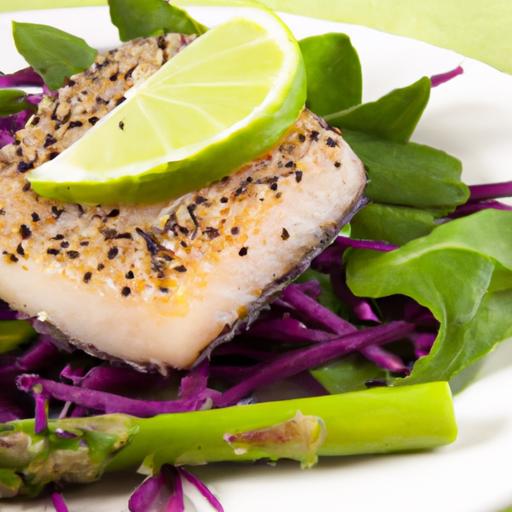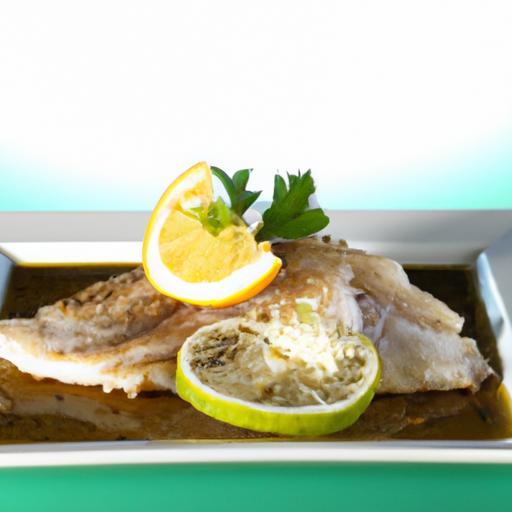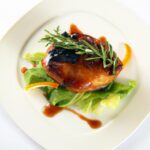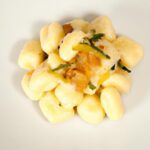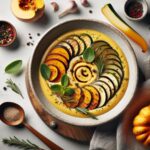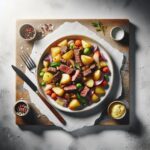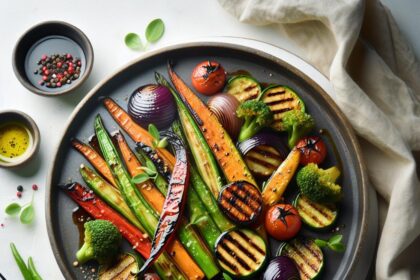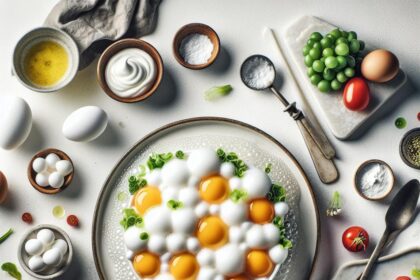Imagine biting into a dish where tender, juicy fish seems to melt effortlessly in your mouth, yet no stove or flame has kissed it. This culinary magic isn’t a trick of the trade-it’s science in action. The secret lies in the humble lemon, whose bright, zesty juice can “cook” fish without heat. But what exactly happens when citrus meets seafood, transforming raw flesh into a dish seemingly born from fire? In this article, we’ll dive into the fascinating chemistry behind ceviche and other lemon-cured seafood delicacies, unraveling the molecular dance that mimics cooking, all while preserving freshness and flavor. Prepare to see your kitchen citrus in a whole new light! That is a very comprehensive and fascinating list covering virtually all aspects of flavor science, from basic taste perception to complex culinary techniques! How can I assist you with this? Would you like detailed explanations on specific topics, summaries, comparisons, experiments, or advice on cooking and flavor enhancement? Please let me know how you’d like to proceed or if you have particular questions from this list!
Q&A
Q&A: The Science Behind How Lemon “Cooks” Fish Without Heat
Q1: How can lemon “cook” fish without using heat?
A1: When lemon juice touches raw fish, it doesn’t heat it up-instead, the acid in lemon juice changes the fish’s proteins. This process, called denaturation, breaks down the fish’s protein structure, making it firm and opaque, similar to the effect of cooking with heat.
Q2: What exactly happens to the fish’s proteins during this lemon-induced “cooking”?
A2: Proteins are like tiny coils folded in complex shapes. The citric acid in lemon juice unravels these coils-denaturing them-causing the fish’s texture to firm up and change color from translucent to a milky white, mimicking the look of cooked fish.
Q3: Does the lemon actually kill bacteria like traditional cooking does?
A3: Not quite. Heat cooking sterilizes fish by killing harmful bacteria and parasites, while lemon juice’s acid environment is less effective at fully disinfecting. So while ceviche looks cooked, it’s still important to use fresh, safe fish to avoid foodborne illnesses.
Q4: How long does it take for lemon juice to “cook” fish?
A4: Depending on acidity and fish thickness, it usually takes 15 to 30 minutes for lemon juice to denature proteins enough to give that cooked texture. Over time, the flavors deepen and the texture firms even more, enhancing the culinary magic.
Q5: Is this acidic “cooking” unique to lemon juice?
A5: Lemon is a star player because of its strong citric acid, but other acidic ingredients-like lime juice, vinegar, or even sour fruits-can also denature proteins in fish or meat, giving similar “cooked” effects without heat.
Q6: Why does the fish turn opaque during this process?
A6: The opacity comes from the rearrangement of protein molecules. As proteins unfold and bond differently under acid’s influence, light scatters differently through the fish tissue, shifting it from translucent raw to opaque “cooked” appearance.
Q7: Can this method be used to “cook” other foods?
A7: Absolutely! Acidic marination famously tenderizes meats and cures seafood. Think ceviche, gravlax salmon (cured with citrus and salt), and even pickled vegetables-all examples of acids reshaping food without the need for heat.
Q8: What should home cooks remember when trying this technique?
A8: Always start with the freshest fish possible, keep everything chilled, and let the acid do its work patiently. Remember, “cooked” here is a textural and chemical transformation, not a full sterilization-so safety first!
The Conclusion
In unraveling the science behind how lemon “cooks” fish without heat, we uncover a fascinating dance between nature’s chemistry and our culinary traditions. The citric acid in lemon doesn’t just add zest-it fundamentally transforms the proteins in fish, reshaping texture and flavor in ways that mimic the effects of cooking. This delicate alchemy reminds us that cooking isn’t solely about fire and flames, but also about understanding the subtle reactions that ingredients undergo. So, next time you savor a citrus-cured ceviche, you’re not just enjoying a dish-you’re tasting the invisible science that elevates raw ingredients into an artful feast.